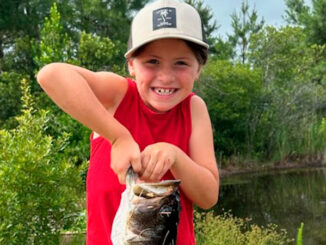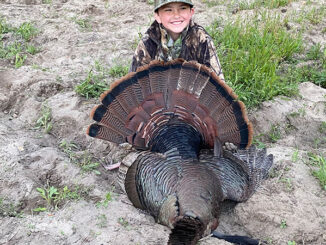
Tobacco settle money funding program in seven counties
Many farmers in Southeastern North Carolina have trouble with high deer numbers, and many hunters in this same region have trouble finding places to hunt deer.
Thanks to a new program, Farmers Manage Deer, that has changed dramatically for the better.
The program, which will attempt to match landowners who need their deer herds thinned with hunters who need a place to hunt, was introduced on Jan. 22 to interested farmers at the Powell Melvin Agriculture Extension Center in Elizabethtown, and other meetings are scheduled for Jacksonville, Rocky Mount and Raleigh — at the Dixie Deer Classic.
“It was a town-hall meeting so farmers could learn more about it,” said Becky Spearman of the N.C. Cooperative Extension. “From my perspective, it’s more about reducing the deer population that creates crop losses. Farmers can get depredation permits to hunt deer out of the season, but hunters may be able do a better job. We will be trying to get farmers to sign up their land. Bladen County is a farming community so this impacts lots of farms.”
The program’s goal is to recruit farmers in Bladen, Robeson, Cumberland, Columbus, Brunswick, Pender and Sampson counties who wish to reduce crop losses and earn additional income through hunting leases. The program coordinators are Guy and Judy Gardner, acting on behalf of the N.C. Wildlife Federation and the Quality Deer Management Association.
“Dick Hamilton, coordinator of the (Federation’s) Camo Coalition, wrote the grant,” Judy Gardner said. “Gordon Myers (executive director of the N.C. Wildlife Resources Commission), Steve Troxler (N.C. Commissioner of Agriculture) and Herman Sampson of Hunters for the Hungry (which will) set up regional depots where hunters can drop off donated meat for food banks.”
At the Elizabethtown meeting, row-crop farmers tentatively agreed to enroll 4,000 acres in the program. The Bladen chapter of QDMA volunteered to operate a Hunters for the Hungry depot in Elizabethtown, and Clarkton Processing agreed to gear up to accept Hunters for the Hungry donations from the program. The Columbus County Tourism Bureau said it would train hunting guides to help make sustainable income for farmers through deer hunting easier to achieve.
Deer hunters will be recruited for two week-long hunts, likely in November. Each hunter will be encouraged to take four does, and hunters can take the venison home or donate it. The privilege of taking antlered bucks will be negotiated separately between landowners and hunters.
After the initial two weeks, hunters and farmers will have the opportunity to extend their relationships, with Farmers Manage Deer offering seamless transitional support.
“We will lease these farmer’s lands for two weeks, and the cost to hunters will be the cost of liability insurance, which is estimated at $10 per week,” Gardner said. “After that, we will provide tools they need to continue the program, with farmers and hunters interacting on their own. We don’t have many day-hunt opportunities in North Carolina, so we anticipate getting hunters from far beyond this state. Out-of-state hunters will bring a boost to rural economies.”
Providing funding and incentive for the program is the Tobacco Settlement Trust Fund, which will end in 2014. The TSTF money replaces loss of income from the dismantling of the tobacco price-support system and goes directly to the tax base of tobacco farming counties. Gardner said the TSTF provides $11 million of tax base in Columbus County alone.
“It will help in two ways,” she said. “It will increase yields by reducing crop depredation and bring in money from hunters who buy fuel, food and other things related to travel and hunting. We have enough funding to enroll 24,000 acres and want to get enough of those acres in major focus areas to truly have an impact on the deer population.”
Hunters and hunters who want to learn more or sign up for the program should visit the website, www.ncagr.gov/hunt.





Be the first to comment